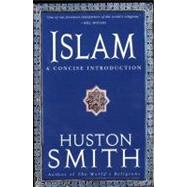
Note: Supplemental materials are not guaranteed with Rental or Used book purchases.
Purchase Benefits
What is included with this book?
| Introduction | vii | ||||
| Prologue | 1 | (2) | |||
|
3 | (4) | |||
|
7 | (10) | |||
|
17 | (6) | |||
|
23 | (10) | |||
|
33 | (14) | |||
|
47 | (10) | |||
|
57 | (18) | |||
|
75 | (16) | |||
|
91 | (4) | |||
| Suggestions for Further Reading | 95 | (2) | |||
| Notes | 97 |
The New copy of this book will include any supplemental materials advertised. Please check the title of the book to determine if it should include any access cards, study guides, lab manuals, CDs, etc.
The Used, Rental and eBook copies of this book are not guaranteed to include any supplemental materials. Typically, only the book itself is included. This is true even if the title states it includes any access cards, study guides, lab manuals, CDs, etc.
“Around the name of the Arabs,” writes Philip Hitti, “gleams that halo which belongs to the world-conquerors. Within a century after their rise this people became the masters of an empire extending from the shores of the Atlantic Ocean to the confines of China, an empire greater than that of Rome at its zenith. In this period of unprecedented expansion, they assimilated to their creed, speech, and even physical type, more aliens than any stock before or since, not excepting the Hellenic, the Roman, the Anglo-Saxon, or the Russian.
Central in this Arab rise to greatness was their religion, Islam. If we ask how it came into being, the outsider's answer points to socioreligious currents that were playing over Arabia in Muhammad's day and uses them to explain what happened. The Muslims' answer is different. Islam begins not with Muhammad in sixth-century Arabia, they say, but with God. “In the beginning God...” the book of Genesis tells us. The Koran agrees. It differs only in using the word Allah. Allah is formed by joining the definite article al (meaning “the”) with Ilah (God). Literally, Allah means “the God.” Not a god, for there is only one. The God. When the masculine plural ending im is dropped from the Hebrew word for God, Elohim, the two words sound much alike.
God created the world, and after it human beings. The name of the first man was Adam. The descendants of Adam led to Noah, who had a son named Shem. This is where the word Semite comes from; literally a Semite is a descendant of Shem. Like the Jews, the Arabs consider themselves a Semitic people. The descendants of Shem led to Abraham, and so far we are still in the tradition of Judaism and Christianity. Indeed, it was the submission of Abraham in his supreme test -- would he be willing to sacrifice his son Ishmael? -- that appears to have provided Islam with its name. Abraham married Sarah. Sarah had no son, so Abraham, wanting to continue his line, took Hagar for his second wife. Hagar bore him a son, Ishmael, whereupon Sarah conceived and likewise had a son, named Isaac. Sarah then demanded that Abraham banish Ishmael and Hagar from the tribe. Here we come to the first divergence between the koranic and biblical accounts. According to the Koran, Ishmael went to the place where Mecca was to rise. His descendants, flourishing in Arabia, became Muslims; whereas those of Isaac, who remained in Palestine, were Hebrews and became Jews.
Islam
Excerpted from Islam: A Concise Introduction by Huston Smith
All rights reserved by the original copyright owners. Excerpts are provided for display purposes only and may not be reproduced, reprinted or distributed without the written permission of the publisher.